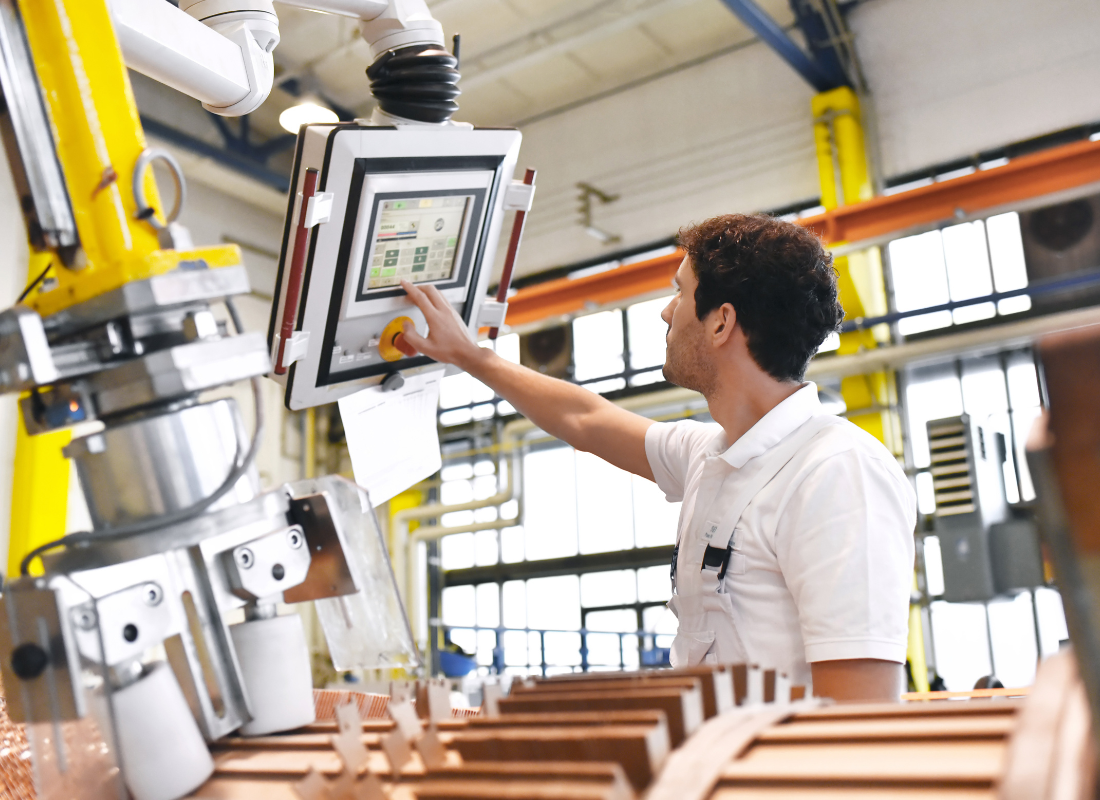How to Maximize Efficiency in Your Manufacturing Business
Originally published on June 23, 2022
Updated on November 20th, 2024
As manufacturers contend with a host of challenges, the need for nimble production processes has never been greater. Companies have faced a global pandemic, international unrest, supply chain disruptions and delays and rising energy and raw material costs – all strains on tried-and-true protocols.
According to Andrea Dallan, CEO of Dallan S.p.A., the key to weathering these challenges is efficiency. Andrea defines efficiency as “lean production,” processes that minimize waste by using less raw material, energy and labor and more flexibility.
Founded in 1978 by Andrea’s father, Dallan S.p.A. designs, produces and installs compact, easy-to-use systems for the sheet metal industry. Andrea grew up watching his father draft machines and began making his own at age six. Later, he studied engineering and worked in sales for Dallan, eventually assisting in all of the company’s departments, from assembly to design. He became Dallan’s CEO in 2013, overseeing a massive reorganization of the company. Based in northeastern Italy, Dallan now has 170 employees and operates across 75 countries. It opened its first facility in the U.S. in 2020.
For Andrea, it was a natural progression from working to maximize efficiency in his own company to assisting Dallan’s customers with efficiency to writing books and coaching other manufacturing companies. He is the author of “The Revolution of Efficiency” and “Think Thin” (set for release this summer) and hosts the Italian-language podcast “Manufacturing Efficiency.”
Andrea sat down with Mike Sibley, leader of James Moore’s manufacturing team, to talk about why he sees sustainability and automation as increasingly vital to companies’ efficiency, stability and growth.
Sustainability pays in the long run.
Andrea identifies four key components of efficiency: sustainability, automatization, productivity and flexibility. “These four aspects are not only what you find in sheet metal manufacturing, but also in a lot of other businesses,” he said.
In their chat, Andrea and Mike discussed the first two components. To Andrea, sustainability is the ability to make the same amount of products with less raw material and energy. While some business owners may balk at the upfront costs at increasing the sustainability of their production processes, these investments pay off in the long run.
For example, using laser cutters for sheet metal and producing metal profiles with roll formers are two systems that have helped Dallan manufacture the same amount of products with up to 20% less raw material. As the costs of raw materials increase, so do these savings.
“When we go down to the calculations of how much cashflow is generated by this product, we are speaking of hundreds of thousands of dollars per year, if not millions in some cases,” he said. “Today, when the cost of raw material is increasing so much, having a 20% saving in the raw material usage can represent a huge asset for the companies that start to invest in this direction.”
Digitizing drive systems represents another way to maximize the sustainability of production processes. According to Andrea, this can result in energy savings of up to 70%. Data from motors and converters can help companies stay competitive and optimize their development processes.
To reduce energy costs, Dallan installed a 96,000-square-foot solar panel system on the roof of its headquarters. The system generates about 420,000 kilowatts annually, meeting the bulk of the company’s energy needs.
Finally, as transportation costs rise, production that has been outsourced to countries with lower labor costs, such as China, is now returning to Europe and the U.S.
Sustainability is “not a turnkey solution for everything,” Andrea said. “But when you really analyze the processes and where the real costs are, that can introduce huge savings.”
Automate strategically and invest in the right talent.
Labor shortages during the COVID-19 pandemic and high turnover rates in the manufacturing industry have led to a surge of interest in automation. Dallan has seen an uptick in customers requesting automated systems.
“Our job is to help other companies how to automate their processes. So, right now we are facing a huge demand,” Andrea said, adding that the delivery of certain machines is scheduled two years out. “Having a higher degree of automation helps companies stay productive and profitable, even during difficult times such as this.”
Automation reduces how much labor is needed to produce a product and makes production more robust, particularly during unexpected challenges such as a global pandemic. It can also insulate against the cost and time required to find, hire and train qualified workers. Escalating wage wars between manufacturers are driving high turnover — and that’s beginning to hold up production.
“There are supply chain issues, but when you get the supplies, and when you get the materials, but then it’s difficult to get them out the door,” Mike said, “the backlog is growing.”
Andrea said many of Dallan’s customers have invested in training specialized operators who then leave to work for competitors. This presents another factor in the increased request for automated systems.
“Right now, we are producing systems that go from the coil of material to the finished product packed in carton boxes, palletized and ready for the delivery,” he said. This essentially creates a single system that accomplishes the work of eight more traditional machines.
However, automation is no substitute for hiring the right talent. Dallan’s new system still depends on two highly trained operators to keep it running smoothly.
“You need to have people with a certain level of skill, so it’s not something that you can delegate,” Andrea said. “You have to be willing as a company, not only to invest in the automation in the machine, but also to invest in the right people to keep production going.”
All content provided in this article is for informational purposes only. Matters discussed in this article are subject to change. For up-to-date information on this subject please contact a James Moore professional. James Moore will not be held responsible for any claim, loss, damage or inconvenience caused as a result of any information within these pages or any information accessed through this site.
Other Posts You Might Like

